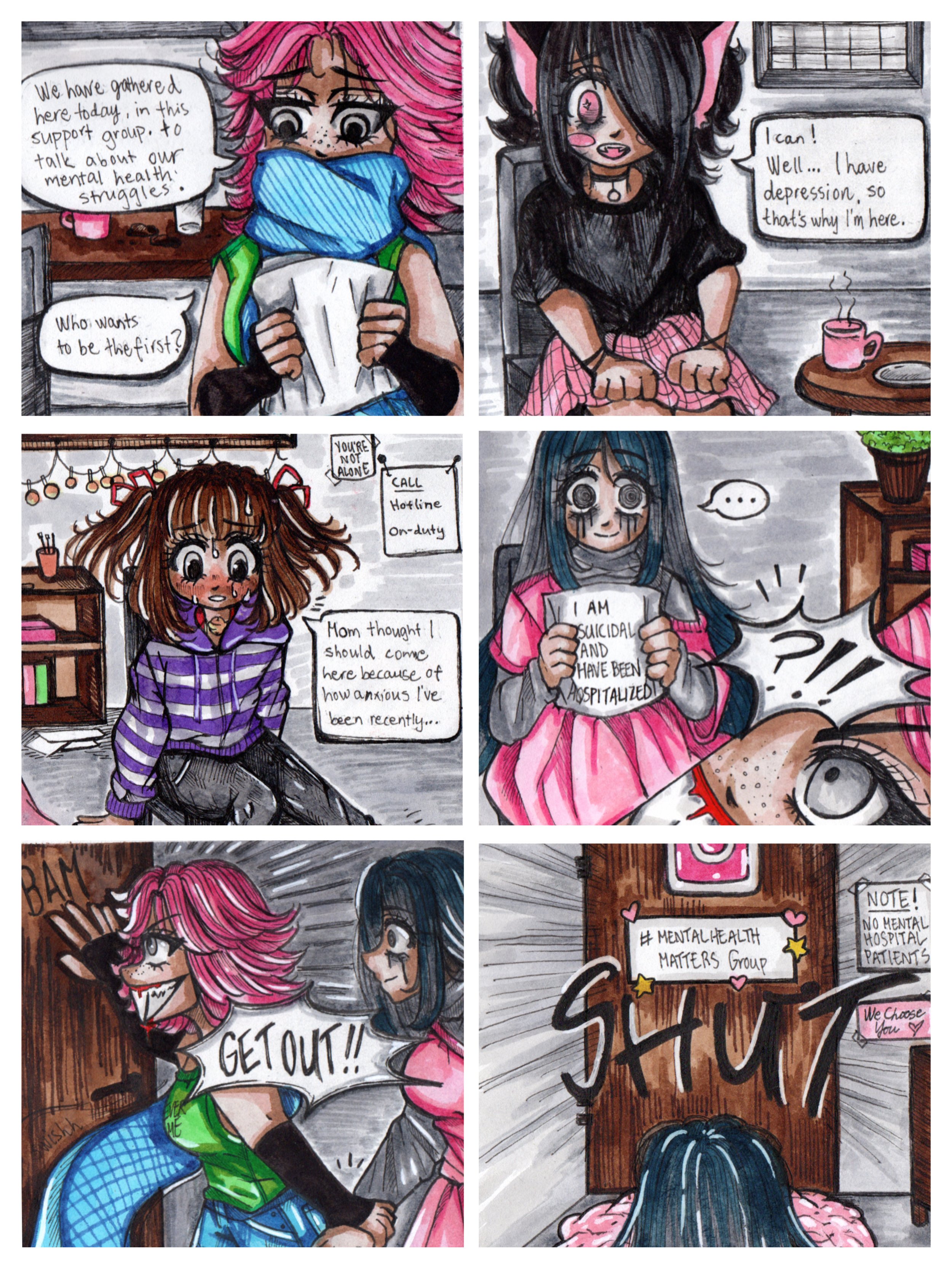Mental Health Aesthetics
One of the greatest things about the internet is the community factor. No matter how cliched it sounds, I’ve never been part of a community of like-minded individuals – or at the very least I’ve never felt particularly welcomed in these spaces. So as is the case for a lot of people with similar background to mine, I’ve found community in the online world. Born in the first year of the new millennium, some of my earliest memories of being on the internet include chatting with my friends on Windows MSN and playing various games that typically had message forums attached to them. These MMOG’s were my second home as a Kid, as from there I found some resemblance of a group I could feel a type of connection to.
In my teenage years, most of my online life existed within the confines of fandom spaces. It was the early 2010’s, social media was getting bigger, and I had an excuse to yap about my nerdy interests with strangers on the interwebs. Fandoms gave me a surface-level feeling of belonging somewhere, I made some Friends of whom every single one has long abandoned me. Well, except for one person, but they are something more than just a friend for me today.
As the years have gone by, I have said my goodbyes to fandom discourse and aesthetic edits of sitcom TV shows, in the pursuit of finding a community with more substance to it, a community I can share my most painful thoughts and feelings with. Social media changed its form from nerdy shit talks to candid and meaningful sharing of mental health struggles.
Mentally ill people have had to fight off the stigma of their health problems since the dawn of the time, but the world of social media has offered some type of consolation to that fight: now you have the chance to talk about all the shit that’s wrong with your head, find other people who have the same kind of issues, and feel a bit less alone in all of it. Being vulnerable and opening up to others with similar backgrounds and traumas can really make you feel like you finally belong somewhere. And to those of us who have the kind of trauma me and you do, that feeling is immeasurably valuable.
But what happens when a community that supposedly fosters unfiltered sharing of one’s struggles starts to punish those who have it “a bit too difficult in life”?
Social media platforms like Instagram portray themselves as these open forums for all kinds of discourse, particularly in the attempt of bringing people together and fostering team spirit among those who are the most vulnerable. But that tone is very quick to change in an instant if you are one of those people whose struggles don’t stop at depressed mood and social anxiety. For instance, if you have ever been hospitalized, admitted to a psychiatric facility…it’s better for you to just shut up about that, because that is too much even for us here in this support group.
group 1–6, comic strip.
(It’s interesting now that I’m thinking about it, that something like this still continues to happen to me when it is so painstakingly similar to what went on in those countless fandom communities when I was younger. There was always something about me that was a bit “too out there” for them to handle, so they promptly yeeted me out of their accepting circle of lame nerds.)
A hashtag that has become somewhat popular during the last few years is #MentalHealthMatters. The sentiment is lovely, and usually people who post using the tag do so with good intentions, but what tends to happen pretty often is users choose to ignore those of us who don’t fit their personal understanding of what mental illness is allowed to look like. The tag is filled with posts of middle-class white women talking about their depression that “makes them a bit sad when there is no need to be sad”, and teenagers airing out their grievances on plummeting GPA’s due to anxiety. And while these struggles are valid and very real for a lot of regular folk, they are not the end-all-be-all of mental illness.
The goal with open public discussion on mental health is to dismantle the stigma and shame people feel for struggling with their psychological well-being. It does not fit the mentality that I see so very often, either exhibited toward fellow content creators or myself; that anything more serious and complicated than depression and anxiety needs to stay hidden. And if you don’t follow the rules, you will be ostracized from the community, just like all those countless other times. And I can’t help but feel sad about it, because this isn’t what I came here to do.
If you’d humor me for a second, I’d like to use common internet lingo and describe this phenomenon I’ve been seeing as “mental health aesthetics”. The community that was meant for everyday people to openly share their struggles with mental illness seems to only be accepting of you if your problems can be aestheticized into self-care routines, bullet journaling, tear-stained cheeks, anxiety tremors, dark circles, and cold hands. You are welcome to talk about what you go through when it only extends to your energy levels, capability to laugh and enjoy life, and willingness to go to parties. But the moment things get so bad you have to be hospitalized, you become one of those crazy people, those lunatics who deserve to be silenced, because nobody wants to deal with the insane.
Mental Health Matters, until you want to kill yourself.
Until you experience hallucinations.
Until you get paranoid.
Until you self-harm.
Until you go into psychosis.
Until you have a personality disorder.
Mental Health Matters, until you get too sick to deal with.
Dismantling,
ichigonya
